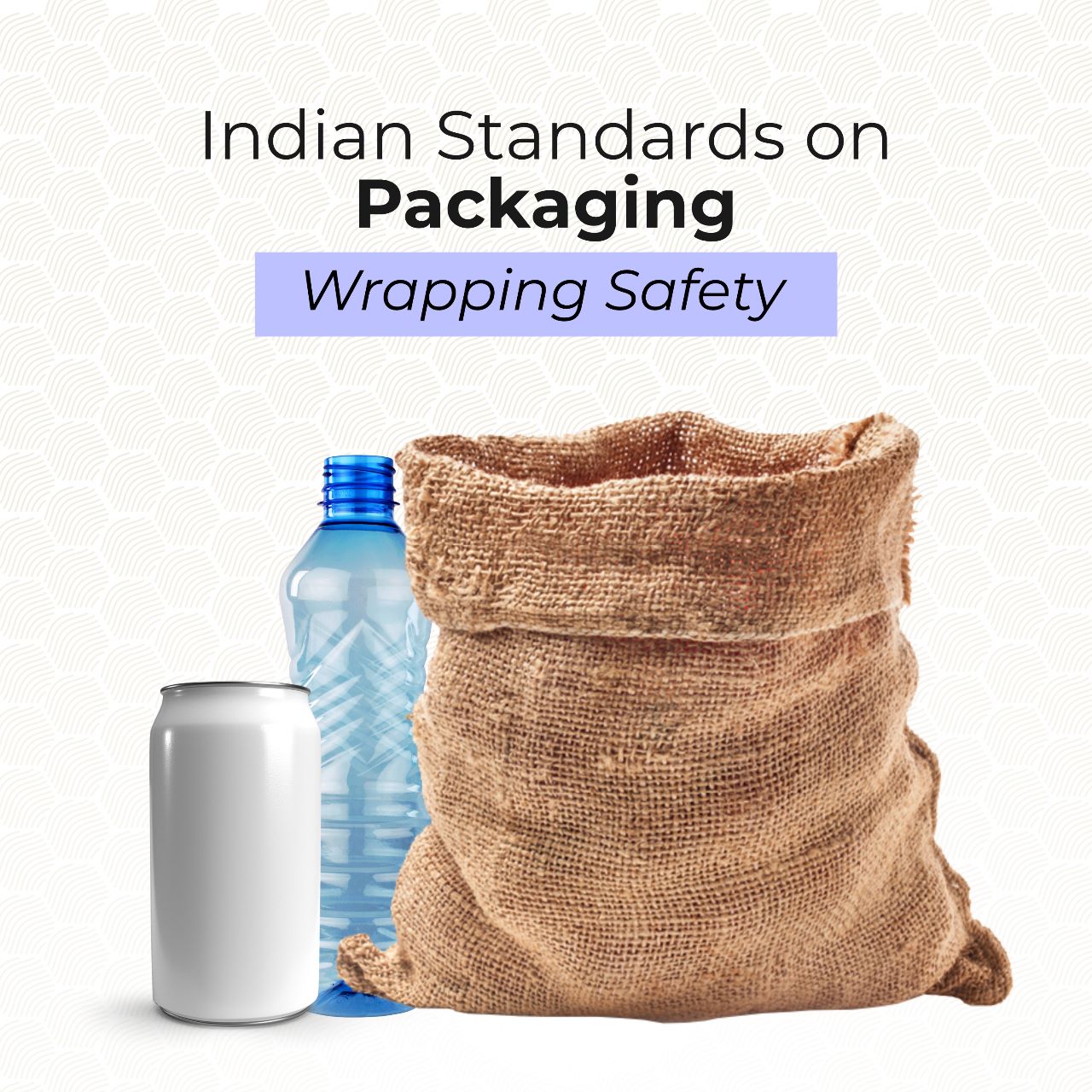

What is the first thing consumers come across at the time of purchasing/buying a product/good?
Packaging!
Sometimes, it can also influence their decision!
Safe and high-quality packaging can have a positive impact on consumers by offering protection, health & safety, convenience, environmental benefits. Therefore, investing in safe and high-quality packaging is a must for any business that wants to ensure safety of its customers, protect its products, build its brand.
The Bureau of Indian Standards is committed to safeguard the consumers and thus aims to extend its surveillance to possibly all products/goods/services. Consequently, Bureau of Indian Standards has formulated various standards on packaging. These standards cover a wide range of topics, including packaging materials, design, recycling etc.
Indian Standards on Packaging:
IS 17753: 2021
Paper based multilayer laminated extruded composite cartons aseptic and non-aseptic for processed liquid food products and beverages specification
17753 is intended to define the quality of paper-based multilayer laminated or extruded composite cartons for the packaging of liquid food products that are processed either aseptically or non-aseptically.
IS 8460: 2023
Wrapping Tissue Paper-Specification
Tissue papers are used as wrapping and packaging papers in several ways. These papers are made from bleached chemical pulps and can be either white or coloured. As per the IS 8460 specification, the tissue paper used for wrapping silverware, ornaments, and similar other metallic items needs to be tested for its staining and tarnishing properties with regard to that particular metal.
IS 14534: 2016
Plastic – Guidelines for the recovery & recycling of plastics waste
IS 14534 covers classification of recycling, identification and making of plastics, steps involved in their recycling, etc. It also prescribes guidelines for the selection, segregation and processing of plastic waste/scrap.
IS/ISO 17088: 2021
Compostable plastics – Specification
Global interest in the issue of solid waste management is expanding. By implementing various recovery techniques to convert garbage into usable goods, cities, towns, and countries are seeking to divert more materials from disposal (landfills and incineration without energy recovery). Plastics recovery technologies include material recovery (mechanical recycling, chemical or feedstock /recycling and biological or organic recycling) and the recovery of energy in the form of usable heat under controlled combustion conditions.
IS 17899T: 2022
Assessment of biodegradability of plastics in various conditions
IS 17899T, formulated by BIS, specifies the procedures for assessment of the biodegradability of plastics, the negative effects of resulting biomass on terrestrial plant growth/organism and regulated heavy metals present in the biomass.
The significance of Indian Standards on Packaging lies in their ability to promote the safety and quality of packaged products, protect the environment, and facilitate trade both domestically and internationally. By adhering to these standards, manufacturers can ensure that their packaging materials are reliable, durable, and efficient, reducing the risk of product damage or contamination during transportation and storage.
Indian Standards on Packaging play a vital role in ensuring the safety, quality, and sustainability of packaging and packaged products, benefiting both consumers and manufacturers.